Join the celebration on social media via #WomenInScience and #IDWGS and follow our Twitter Moment.
On the occasion of the International Day of Women and Girls in Science on 11 February, we asked our members to share inspiring stories of women and girls working as researchers, plant breeders, plant pathologists, gardeners, scientists etc. in breeding companies across Europe and beyond.
Women in Science
“The world needs Science, and Science needs Women”
Irina Bokova, former UNESCO’s General Director
Women scientists are leading ground-breaking research across the world. But despite their remarkable discoveries, women still represent just 33% of researchers globally, and their work rarely gains the recognition it deserves (according to UNESCO Science Report: towards 2030 (2021)). Only 11% of senior research roles are held by women in Europe and only 3% of Nobel Prizes for science have ever been awarded to women. A few remarkable exceptions fortunately exist: Jennifer Doudna and Emmanuelle Charpentier, inventors of the Crispr-Cas genome editing tool, received the 2020 Nobel prize in Chemistry.
“Our future world and specifically our agriculture rely on these important discoveries in science to apply them for mitigating the impact of climate change and sustainably preserving food security,” says Garlich von Essen, Euroseeds Secretary General.
And Since Charpentier and Doudna discovered the CRISPR genetic scissors in 2012, their use has literally exploded. They already contributed to many important discoveries in basic research, and plant researchers have already been able to develop first crops that better withstand climate threats as well as new pests and diseases.
As the world hurtles towards a future threatened by climate change and resource scarcity, the global scientific community must lose no time in recognising and promoting women scientists’ achievements.
Women in Plant Breeding
To shine a spotlight to their contributions and to inspire more women and girls to go into science and innovation, and especially to the seed sector, we have collected many enlightening stories from plan breeding companies across Europe: women as researchers, plant breeders, plant pathologies, gardeners, scientists, from fields, laboratories etc.
Vania Kulka – a corn breeder out of passion
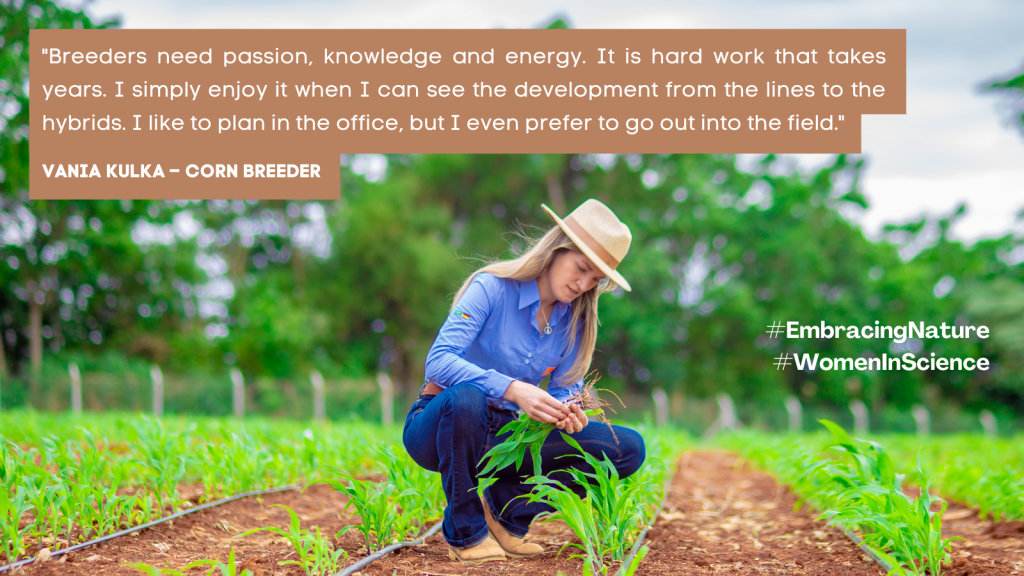
When Vania Kulka looks out the window of her office, she can watch her work as it grows. Her gaze wanders over the nurseries and trial fields of the KWS Ponta Grossa breeding station in the state of Paraná. Here she is responsible for the corn breeding program for Southern Brazil. Subtropical climate characterizes the region, which mostly has fertile soils, ideal for agriculture. However, the region is also characterized by very different climatic conditions. This is a real challenge for breeders – and exactly what makes Vania Kulka so enthusiastic about her job. The main goals of corn breeding in Southern Brazil are high yield, early maturity and disease tolerance. Especially fast developing plants are crucial for the region in Southern Brazil.
“Breeders need passion, knowledge and energy. It is hard work that takes years. I simply enjoy it when I can see the development from the lines to the hybrids. I like to plan in the office, but I even prefer to go out into the field.”
That’s not far: Vania Kulka’s office is right in the middle of the trial fields.
Aurélie Jouanin – Research Scientist Molecular Technologies
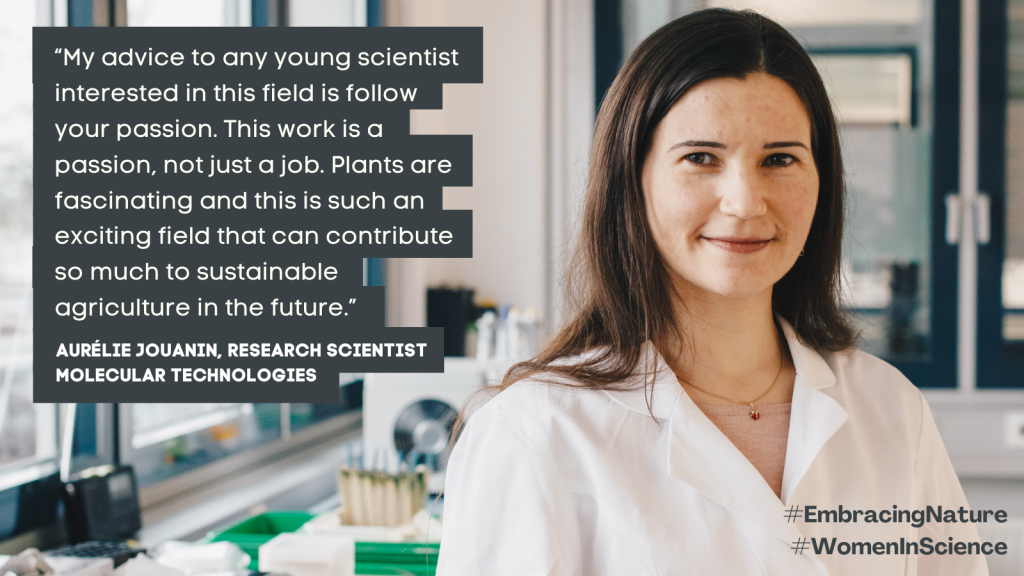
“Since I was a child, I have always been interested in creating new plant varieties. At that time, it was by crossing flowers in the garden. In high school I became fascinated by my genetic classes and decided to work in plant biotechnology. All my learning was focused in this direction, and I studied across Europe. This culminated in my PhD that focused on plant Genome Editing. I always wanted to work for a seed company, to see the impact of my work in farming. The most interesting part for me is how much Genome Editing contributes to either discovering or enhancing plants mechanisms responsible for traits that are necessary for getting better crops for the farming community and for the environment. Every time we start a new project, it is really exciting to witness all the benefits that could be provided with this technology. My advice to any young scientist interested in this field is follow your passion. This work is a passion, not just a job. Plants are fascinating and this is such an exciting field that can contribute so much to sustainable agriculture in the future.”
Alexandra Bothe – Plant Breeder
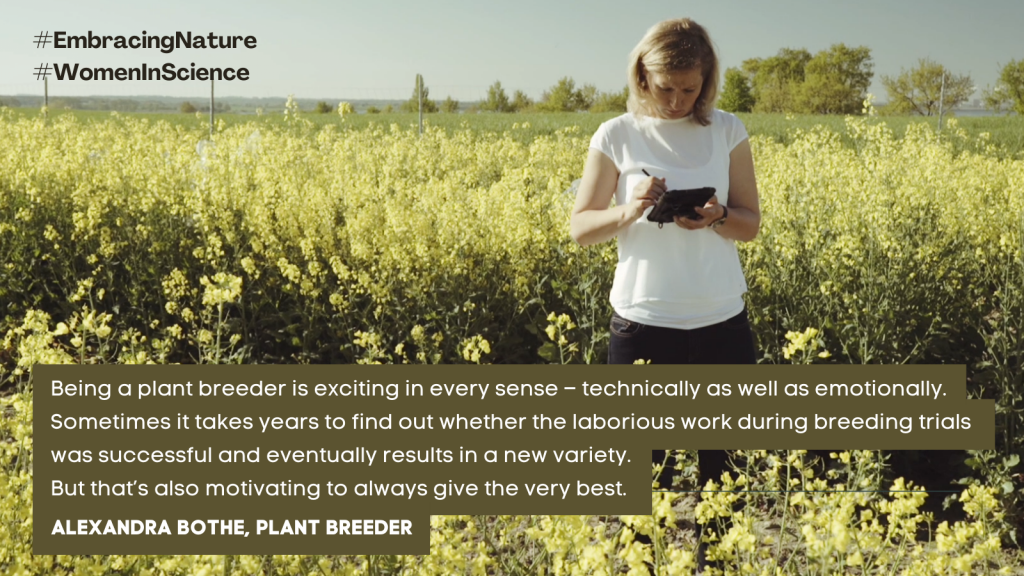
Anne Van Loon – Gardener
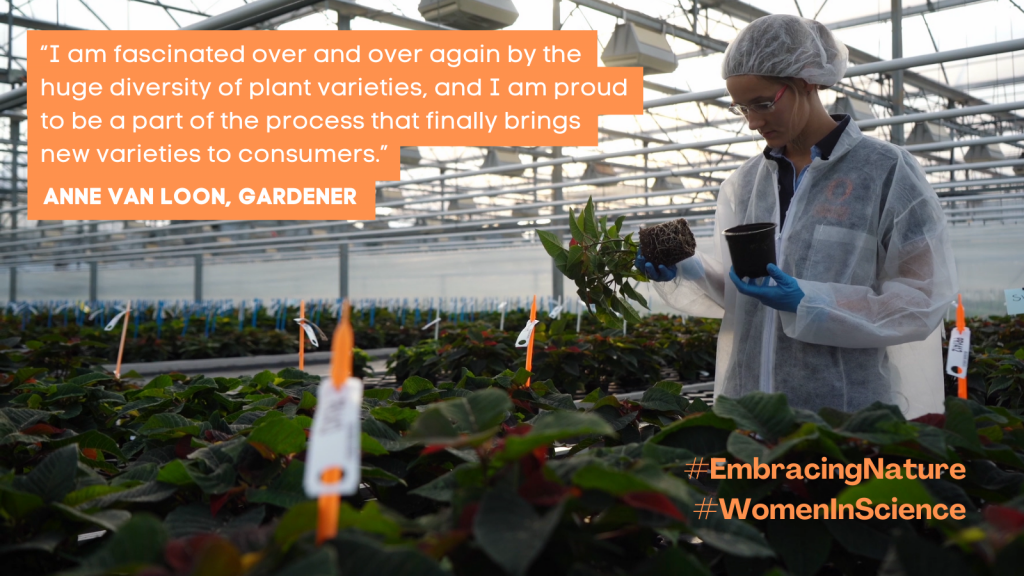
Ariana Valdés Velazquez – Scientist
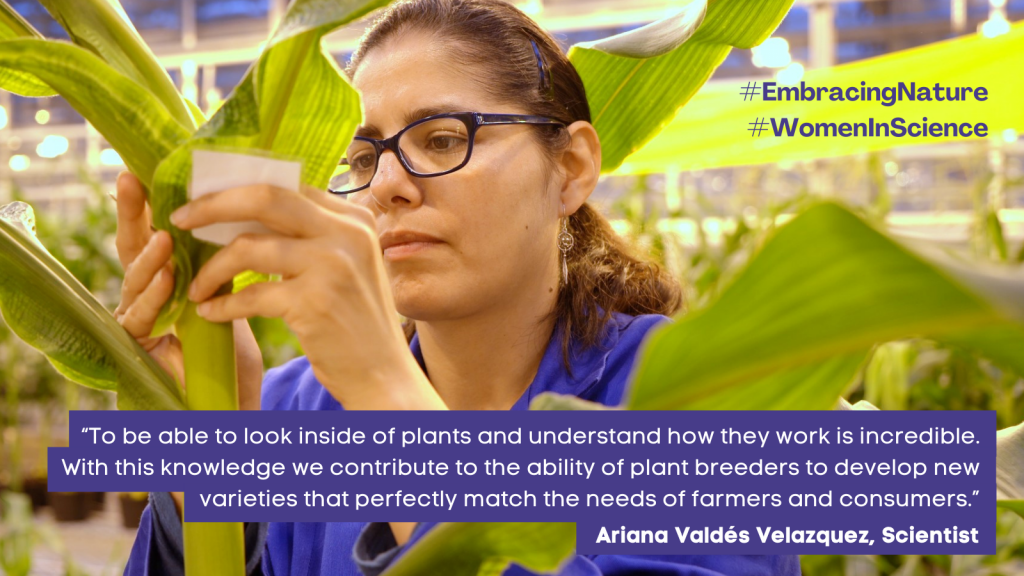
Carola Luijten – Lettuce Breeder

“As a lettuce breeder I’m responsible for different lettuce breeding programs. Within the programs I try to find the best new lettuce types that contains some new traits which can be of value through the whole chain. For example, you can think of new resistances against diseases, easier to harvest for the grower, or better shelf-life for the consumer. We find these new traits and we make crosses between different lettuces types. Once the crosses are made we go into the field to select the best lettuce plants; we do this a couple of generations to make the new variety uniform. It’s always a challenge to find the best lettuce varieties with all the traits we need. This job is a combination of field- and office work, which makes it very diverse. We do this work is a small team. Next to that we also have a lot of contacts with our sales reps, the growers and the consumers. We need these contacts to serve the market in the best way. If we don’t know what they need we don’t make the right variety.”
Joke van Elven – Researcher Phytopathology
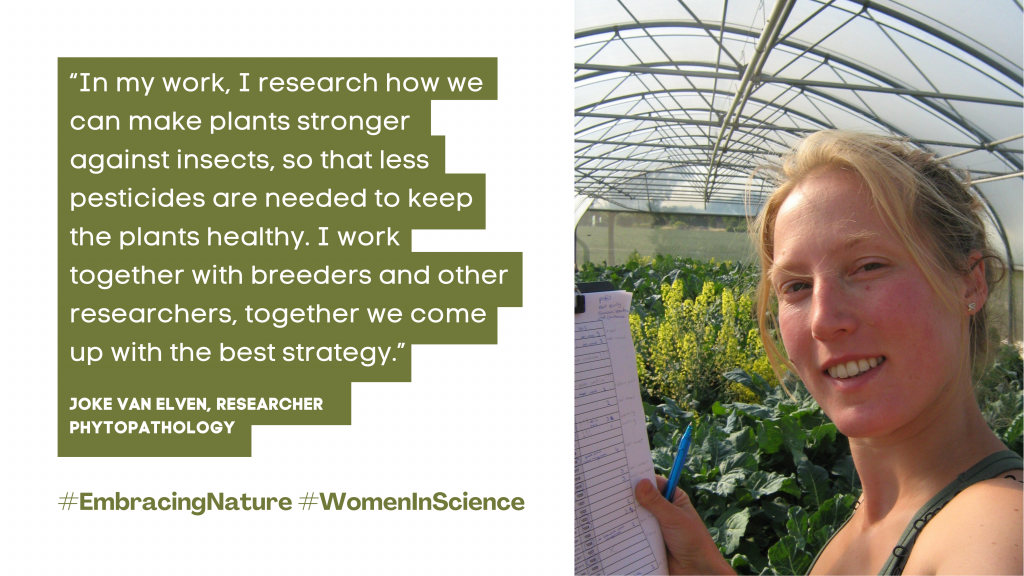
Pauline Mallessard – Brassica and Cucumber Breeder
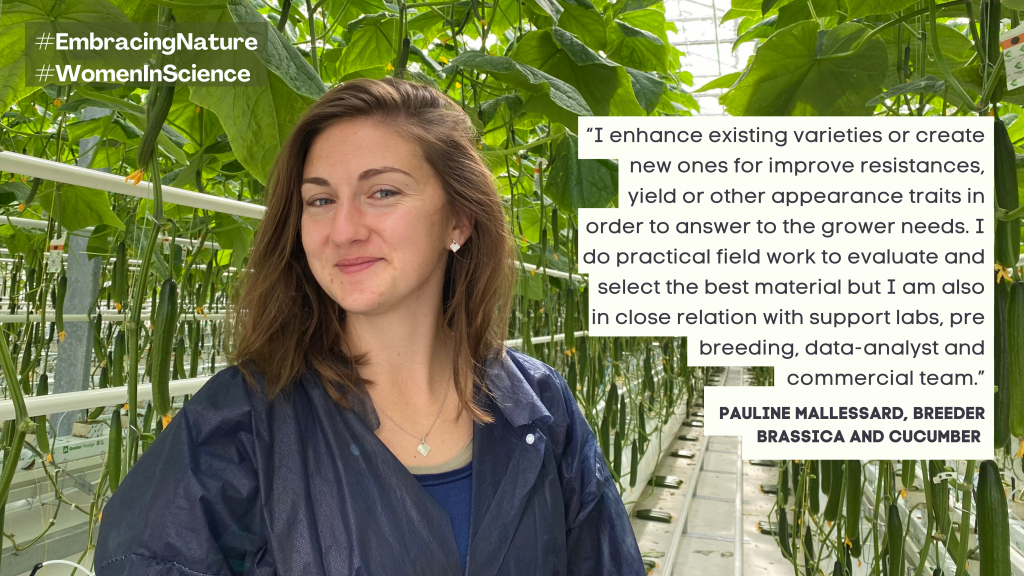
Nathaly Lopez Garreaud – Researcher Bioinformatics
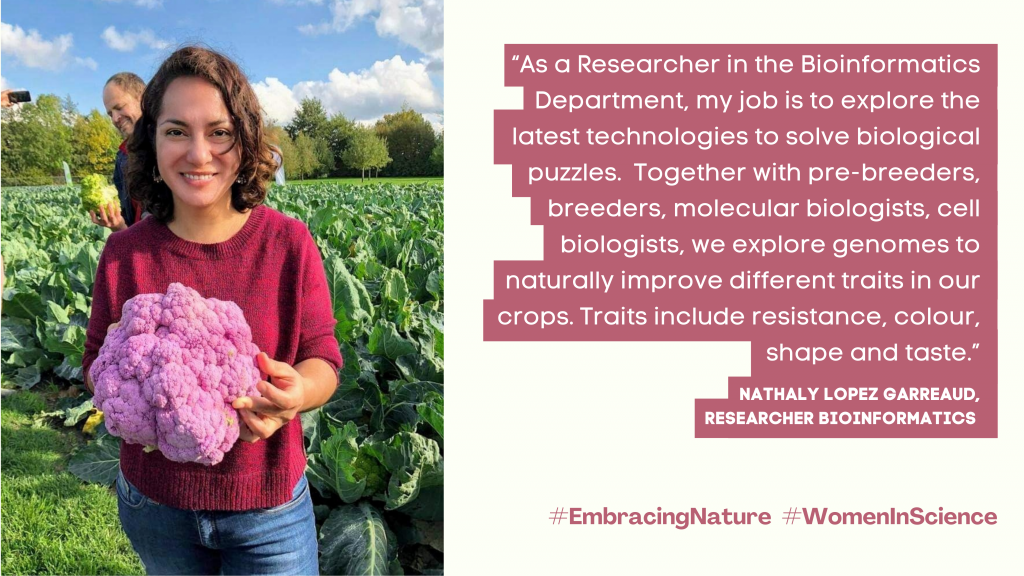
“As a Researcher in the Bioinformatics Department, my job is to explore the latest technologies to solve biological puzzles. Together with pre-breeders, breeders, molecular biologists, cell biologists, we explore genomes to naturally improve different traits in our crops. Traits include resistance, colour, shape and taste. As a researcher bioinformatics, no day is the same… One day I am exploring plant genomes, another day I am analyzing pathogenic dna, or the interactions between pathogens and plants… It is not just about coding, it is also about understanding the biology, analyzing lots of data and finding the piece to solve the puzzle.”